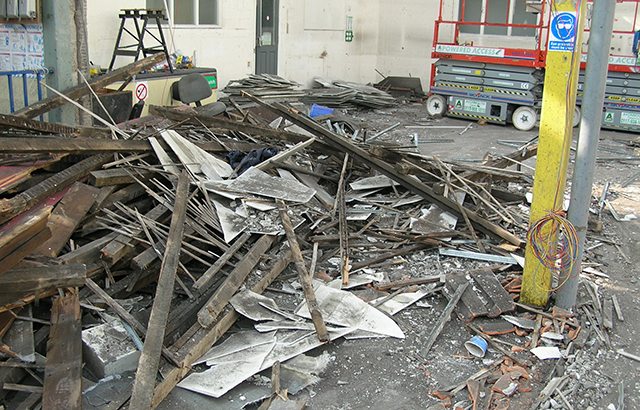Business
Asbestos surveys – benefits you need to know

Asbestos is the name given to a group of naturally occurring fibrous minerals widely used in the production of various construction and heat-resistant materials.
However, it has been described as a significant health risk. Respiratory diseases linked to exposure include asbestosis, lung cancer and mesothelioma. To avoid such risks, it is therefore mandatory to include asbestos surveys as important elements in building safety measures. Asbestos status surveys identify the locations and status of ACMs to ensure that management and/or removal can be carried out effectively to protect human health.
These are the benefits:
Identification of asbestos-containing materials
is done to ensure proper confirmation of the ACMs present in a structure. Many structures built before the 1980s may contain asbestos in the insulation, flooring, roofing, or other construction materials. In the following ways, a survey provides an overview that is critical to structured risk management as it focuses on identifying the exact locations and types of asbestos. If this information is not obtained, asbestos remains unseen and may remain a health hazard for the people occupying the property.
Reduction of health risks
Regular surveys help minimize the various health problems caused by asbestos exposure. If ACMs are disturbed or destroyed, fibers can be released into the environment and cause health problems if inhaled. The World Health Organization estimates that approximately one hundred and twenty thousand people die each year from asbestos-related diseases. These exposures are prevented through asbestos surveys allowing ACMs to be adequately managed or eliminated, significantly reducing the risk to building occupants.
Regulatory compliance
For compliance reasons, it is also mandatory to carry out asbestos surveys. Several countries have extensive measures and policies regarding the use of asbestos. For example, in the United States, the AHERA – Asbestos Hazard Emergency Response Act requires schools to inspect for asbestos and have management plans. Similarly, the UK Control of Asbestos Regulations 2012 contain provisions on asbestos management in non-domestic buildings. Failure to comply with these regulations has serious legal and financial consequences, making asbestos surveys no longer a priority, but not only a health problem, but also a legal problem.
Economic benefits
Although carrying out asbestos surveys entails one-off costs, it is a way to achieve a high economic return. It is wise for companies to identify and properly address asbestos because its presence is costly in terms of compensation for impaired health and from a legal perspective. Likewise, it can lead to an improvement in real estate prices and the marketability of buildings. From the company’s perspective, cost savings can result in controlling various healthcare costs, which in turn will provide the company with a healthy environment in which employees will be more productive.
Conclusion
Asbestos investigations protect people’s health, meet legal requirements and bring economic benefits. These examinations enable proper recognition and handling of asbestos-containing materials, thus preventing the serious health consequences caused by exposure to the material. Due to the high risks and major limitations existing, proper and frequent asbestos assessment is crucial for property owners and managers. The resources to fund these studies are well spent on the health and safety and future prosperity of the company.













